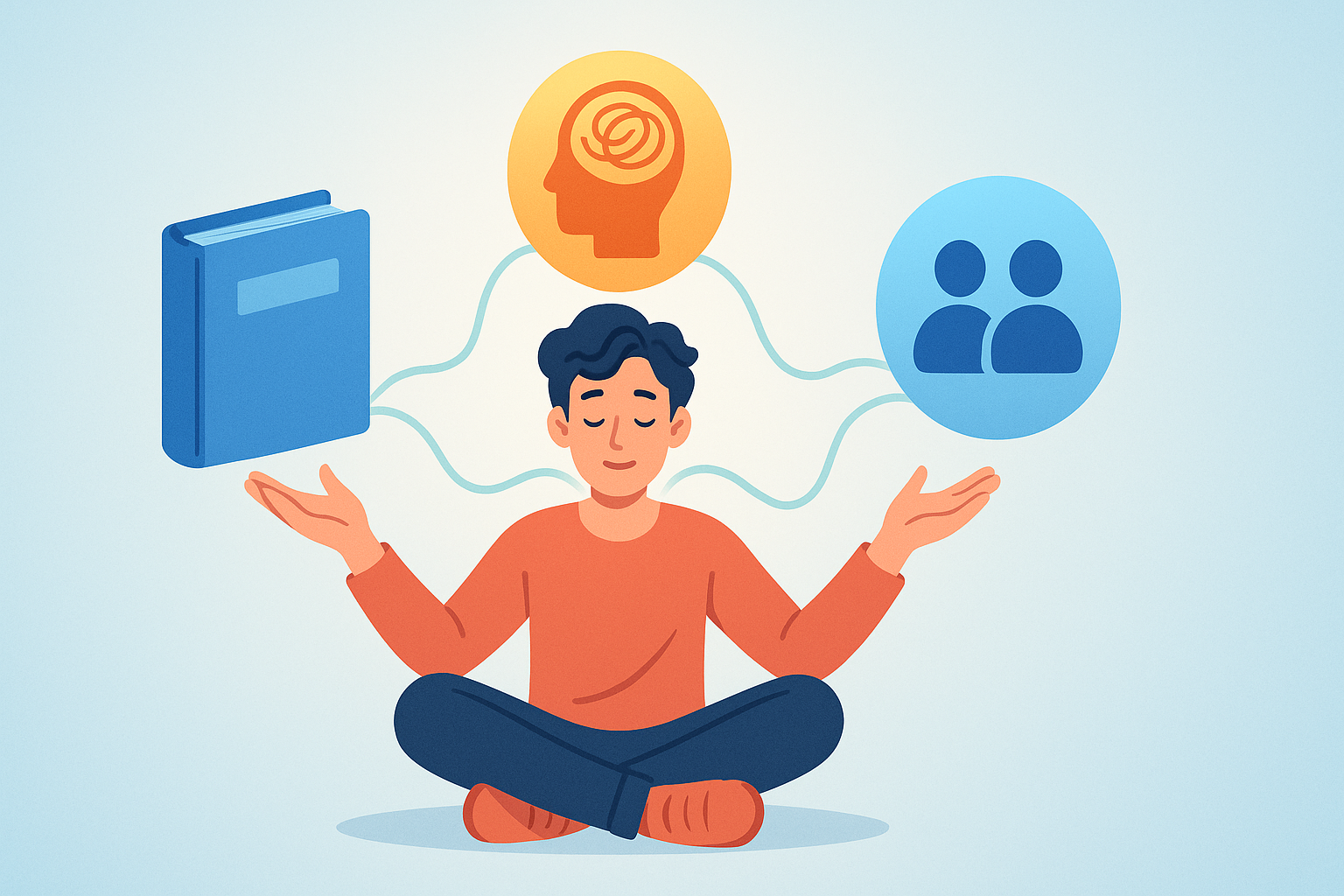
Surabhi Verma
January 15, 2026
•
4 min read

It can feel difficult to find balance when it comes to academics, friendships, and the reality of anxiety. Each of these is important in their own way – studying is responsible for things like job opportunities, friendships give us enjoyment and shared memories, and anxiety is simply our body communicating feedback about imbalance. Indeed, to assign priority to one does not mean they are less important, but our aim is not to be perfectly balanced in our management of these three competing systems, but rather to find a way to manage them without one dominating the others.
When you study you need focus, while friendships require spontaneity and time. Anxiety is often present when you are required to meet competing needs, like “do I skip lunch with my classmates to get work done or do I lose valuable recovery time to keep up socially?” Recognizing that both needs are valid will lower your guilt around potential imbalances.
Being aware of what your anxiety is leading you toward is more productive than viewing it as a road block. Is it pointing to procrastination? Overcommitted? Loneliness? Recognizing that anxiety is more like a beacon pointing to you where your attention needs to be directed may open possible healthier choices, as opposed to panic being the dominant reaction.
If you build in small systems you can avoid feeling overwhelmed:
Boundaries are not walls – they are meant to keep balance. Saying, “I can’t go out tonight, but let's plan tomorrow” or making a decision about when it is appropriate to stop studying and rest allows academics and friendships to exist without anxiety being overpowering.
Balance does not always mean separation. You can study with friends, take a walk together, or even share your notes. You are bettering your relationship and spending time with those you love while also supporting your academic and personal goals.
Progress may happen in small ways – completing a book chapter, sending a supportive text, or being more calm than yesterday. Celebrating these examples solely reinforces the notion that balancing your commitments is indeed realistic.
Balance could look different every day. Some days studying may need to take priority over spending time with friends, other days weighted towards activities with friends, and others mental health and solitude. With purpose and compassion, you can pursue goals, build relationships, and protect your peace of mind, no matter how hard or easy of a day you are having.
Ready to take charge of your mental wellness? Try Brightn free today.
